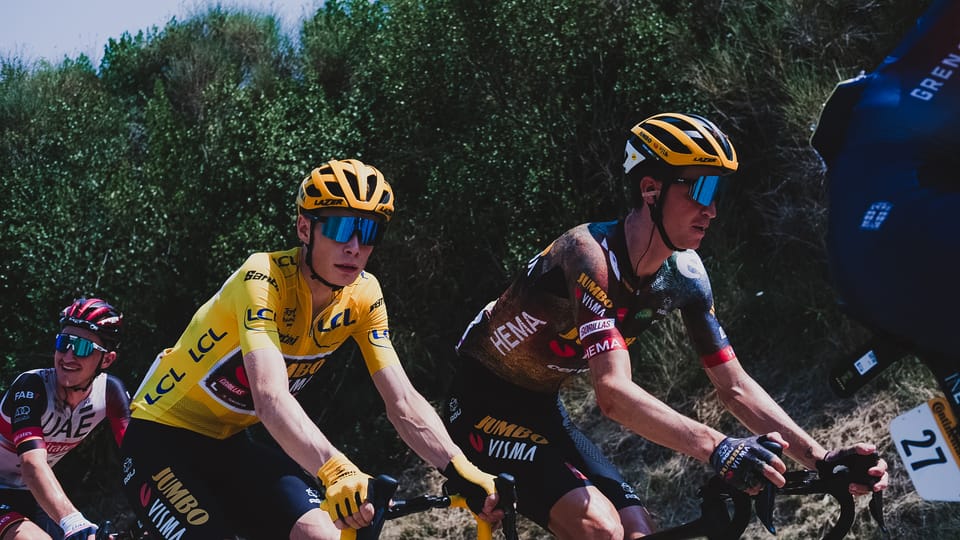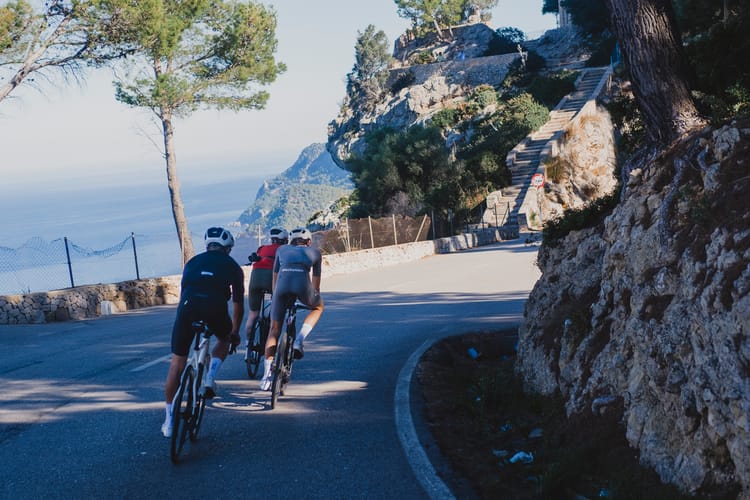The Double-Edged Sword of Dominance in Sport

Sport thrives on drama. On uncertainty. On the possibility that anything could happen when the whistle blows or the flag drops. That’s why we watch because we don’t know who will rise, who will falter, and what stories will be written in the heat of competition.
But every so often, a rider or athlete comes along who bends that uncertainty into something closer to inevitability. In cycling, in tennis, in Formula 1, in football we’ve all seen it. The figure who is just so much better than everyone else that their presence changes the shape of the competition. The story stops being who will win? and starts being by how much will they win?
It’s a strange paradox. On the one hand, greatness should be celebrated. You can’t fault someone for being extraordinary, for training harder, racing smarter, or simply having a talent no one else can match. On the other hand, that very dominance risks stripping away the very thing that makes sport compelling: its unpredictability.
So is the rise of a dominant figure good or bad for sport? The answer, like most things, sits uneasily in between.
The Beauty of Greatness
First, let’s deal with the obvious. Watching a rider at the peak of their powers is something special. Think of Miguel Induráin in the 1990s, controlling the Tour de France with an ease that seemed almost mechanical. Or Chris Froome in his prime, grinding away on the steepest climbs with that unmistakable cadence. Or more recently, Tadej Pogačar, who seems to float uphill as if gravity applies differently to him.
These are moments that define eras. Generations of fans and riders look back and say: I was there when he did that. They raise the bar of what’s possible, and in doing so, they inspire others to chase higher standards. Without dominance, there’s no benchmark to measure greatness against.
It’s also important to remember that dominance isn’t gifted; it’s earned. Behind the winning streaks are years of sacrifice, discipline, setbacks, and marginal gains. To criticise a rider simply for being too good misses the point. They’re doing exactly what they’re supposed to do: compete at the highest level and win. And if their rivals can’t match them? That isn’t their fault.
Greatness, in this sense, is pure. It should be admired, even revered.
The Shadow Side
But here’s the uncomfortable truth: dominance, while admirable, can make sport boring.
Think of a Grand Tour where one rider seizes yellow in the first week and never looks back. Every mountain stage, you know what’s coming. Every time trial, the gap only grows. The suspense evaporates. Fans still tune in, but more out of habit than excitement. The magic of anything can happen fades into the monotony of the same thing keeps happening.
Cycling isn’t alone in this. Formula 1 suffered years of predictable Mercedes dominance under Lewis Hamilton. Tennis, for all its glory, sometimes became repetitive when Nadal, Federer, or Djokovic turned up and simply dismantled everyone else. Even football dynasties, like Bayern Munich’s grip on the Bundesliga, raise questions: does anyone really want to watch a league where the winner is decided before the first ball is kicked?
The issue isn’t just about the fans. Dominance can be disheartening for the competition itself. Riders turn up already knowing they’re racing for second place. Tactics become less about how to win and more about how not to lose too badly. The field contracts, ambition shrinks, and the sport risks eating itself from the inside out.
In the long term, that damages growth. New fans tune in looking for drama but see a one-sided story. They drift away. Sponsorship, which thrives on visibility and uncertainty, becomes harder to justify if races lack excitement. What’s good for one rider can end up being bad for the sport.
The Human Element
What complicates this further is the human element of how we relate to sport. Fans don’t just watch for results; they watch for narratives. For rivalries, for underdog stories, for drama. A dominant rider removes much of that.
It’s hard to build a rivalry when one athlete is so much better than the rest. The underdog story feels hollow if the underdog never truly stands a chance. The drama becomes predictable, and predictable drama isn’t drama at all.
And yet, humans also love heroes. The idea of a rider so far ahead of the pack that they almost become mythical has its own appeal. Kids grow up wanting to be the next dominant star. Other riders dream of being the one to finally topple them. Greatness inspires, but it also divides.
Cycling’s Unique Relationship with Dominance
Cycling, perhaps more than most sports, sits in a unique position. Because it’s not just about the winner. You can have a Tour de France where the yellow jersey is sewn up early, but stage wins, breakaways, and other jersey battles still create stories. That’s the saving grace.
The sport is layered. Even if one rider dominates overall, others can still shine in smaller moments. Think of Mark Cavendish chasing sprint stages while the GC battle plays out in the background. Or climbers like Thibaut Pinot lighting up a mountain stage even if they’re nowhere near the podium.
But still, there’s no escaping the truth: the yellow jersey defines the Tour. The overall winner is the story. And when that story feels pre-written, the race loses something essential.
Why It’s Okay to Feel Both Ways
This is why dominance in sport sparks such conflicted feelings. On the one hand, we should never begrudge a rider for being brilliant. If someone is the greatest of all time, that’s something to celebrate. They’ve earned it. Their dominance sets the stage for the next generation to rise and eventually challenge them.
On the other hand, as fans, we’re allowed to crave unpredictability. We’re allowed to admit that while we respect the champion, we’d still like to see them beaten once in a while. Because ultimately, what makes a victory meaningful isn’t just winning it’s overcoming the possibility of losing. Without that possibility, victory feels thinner, less alive.
The Future: Cycles of Dominance
History shows us that dominance never lasts forever. Induráin retired. Froome faded. Even Merckx eventually lost. In time, every dominant rider meets their match, whether through age, injury, or the emergence of a new talent. Sport, by its nature, resets itself.
That perspective can help. While we might groan at another predictable win this season, it’s worth remembering that change always comes. Dominance defines eras, but eras shift. And when they do, the sport often feels reborn.
The Balance We Crave
Dominance is both the glory and the curse of sport. It gives us heroes but risks taking away suspense. It inspires, but it can also bore. It builds eras but can shrink the drama that draws us to watch in the first place.
As fans, perhaps the healthiest stance is to hold both truths at once. Admire the brilliance of the champion, but also long for the day they’re finally tested. Respect their dominance, but hope for an upset. Celebrate greatness, but never lose the hunger for uncertainty.
Because at the end of the day, sport isn’t just about who wins. It’s about the stories along the way. And even in an era of dominance, if we look closely enough, those stories are still there waiting to be told.






Member discussion